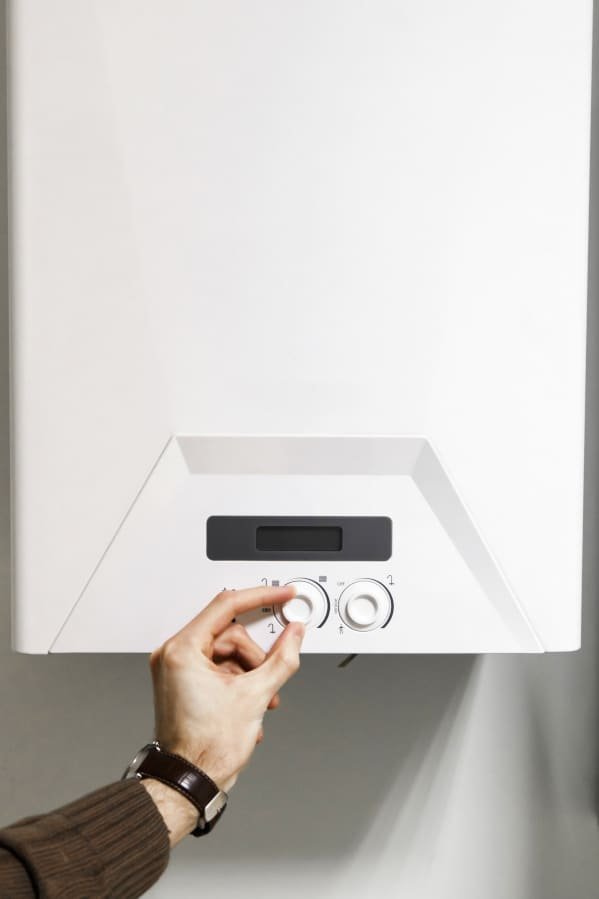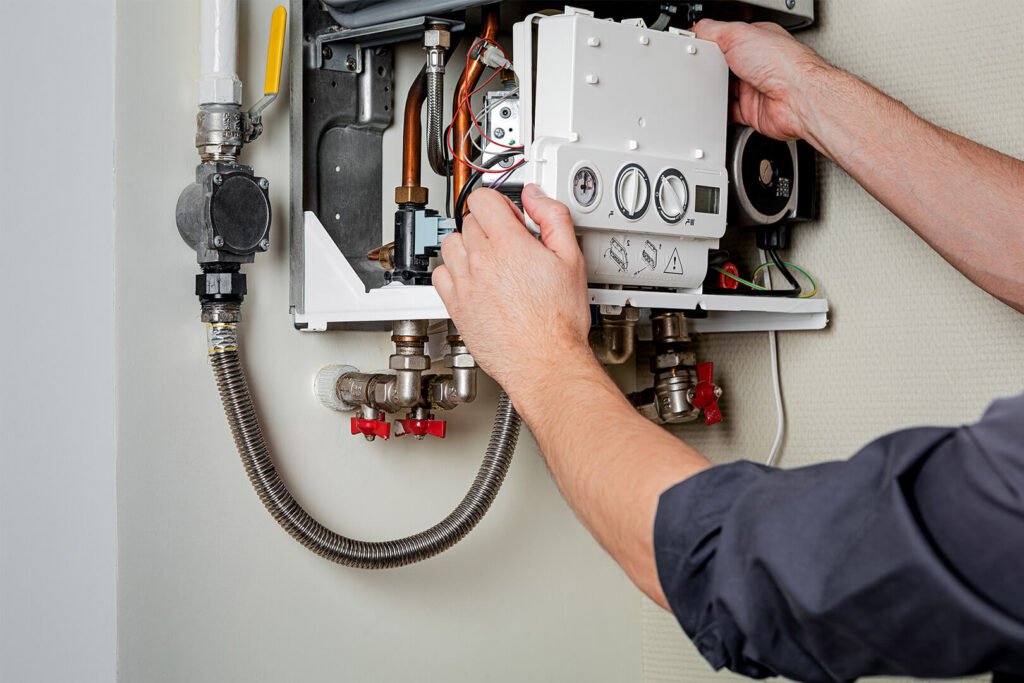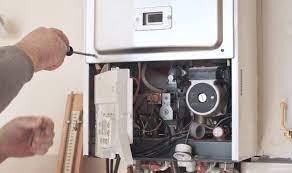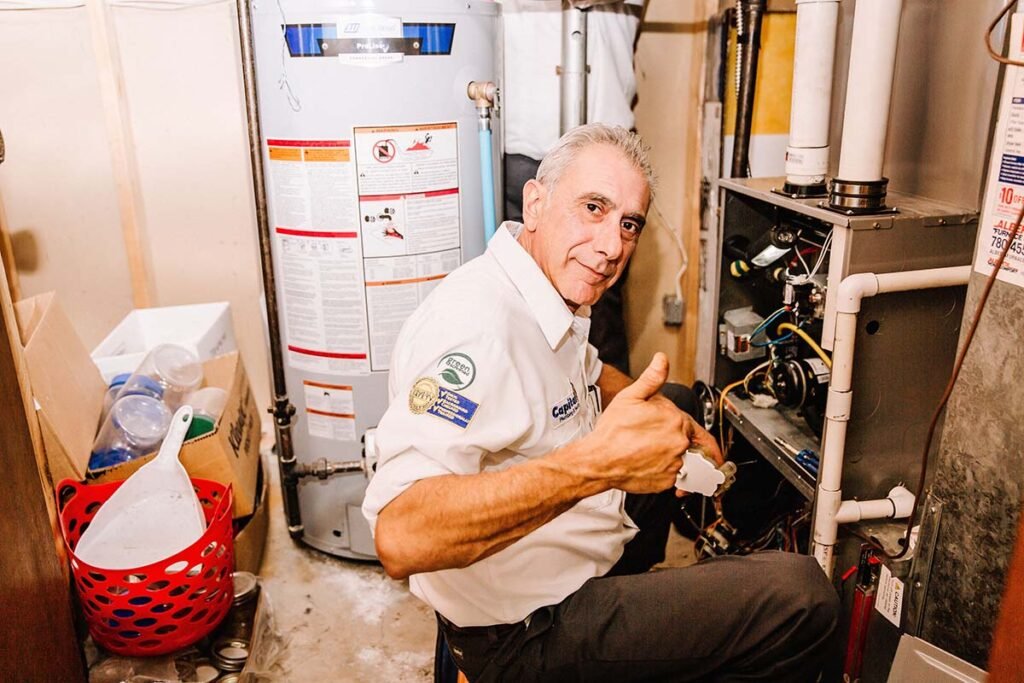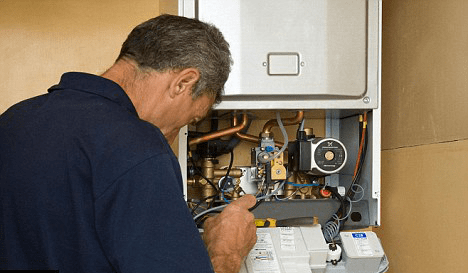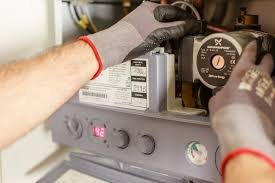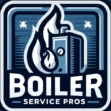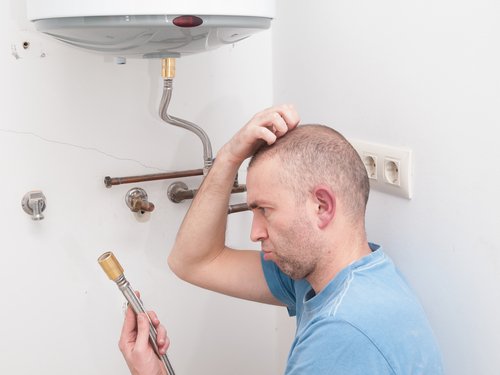Boiler Repair Mill Woods - The Preeminent Boiler & Plumbing Services in Mill Woods, Alberta
Boiler Service Pros in Mill Woods is the foremost contractor for all-inclusive boiler services. Renowned for our professionalism, we specialize in repairs, ensuring optimal performance for all heating systems. Our team of experienced professionals is known for delivering high-quality workmanship tailored to each customer's unique requirements. Our commitment to reliability makes us a top choice among Mill Woods residents. Additionally, our company stays updated with the latest industry standards, ensuring solutions are both innovative and cost-effective. This dedication to excellence and customer satisfaction solidifies our reputation as the premier boiler service provider in Mill Woods and the surrounding areas.
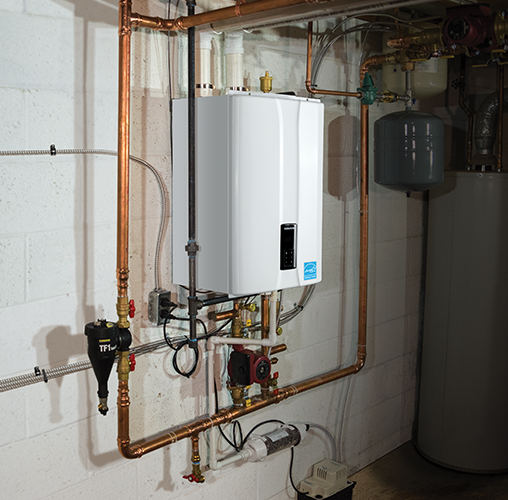
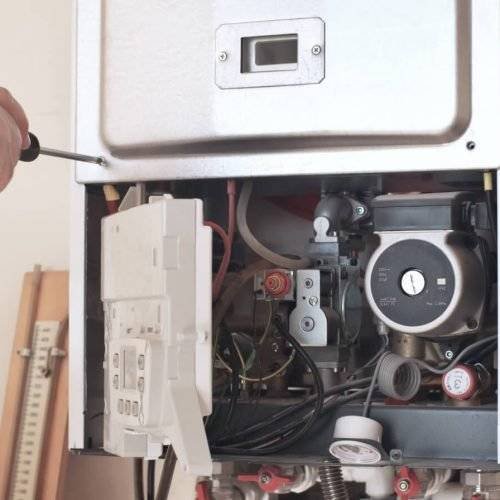
Who Are We?
Residential and Commercial Boiler Repairs and Installations
Boiler Service Pros’s team is a distinguished name in the realm of boiler maintenance and repairs, embodying a blend of reliability, customer-focused service, and expertise. Established to provide first-class boiler solutions, this contractor has made its mark in the heating system industry. Our services encompass a wide range of boiler-related work, including expert installations, intricate repairs, and routine maintenance, serving both residential and commercial sectors.
At the heart of Boiler Service Pros operations lies a team of certified and seasoned professionals. Our pros are skilled in handling various boilers and consistently update their skills to stay abreast of the latest technological upgrades and industry standards. This commitment ensures they equip themselves to tackle any boiler issue, whether it’s a classic design or the latest environmental-friendly system.
What sets Boiler Service Pros apart is our dedication to customizing services to meet each client’s unique needs. Understanding that each boiler has specific demands, they approach every project with a customized approach, guaranteeing optimal performance and longevity of the boilers they work on.
Our efficient and dependable service has gained significant recognition among our clients. They understand the importance of a functioning boiler, especially in harsh weather conditions, and aim to provide fast and effective solutions to minimize any inconvenience to their clients.
Furthermore, Boiler Service Pros places a significant emphasis on affordability and transparency. Our competitive fees ensures that quality boiler service is accessible to a broader range of customers. And our clear policies and no hidden charges foster trust and reliability.
In conclusion, Boiler Service Pros is a top company in the boiler industry, differentiated by its skilled team, commitment to customers, and dedication towards quality and affordability. Our continuing purpose to deliver supremacy in all aspects of our business solidifies our their position as a devoted and beloved company in the industry.
How can we help you?
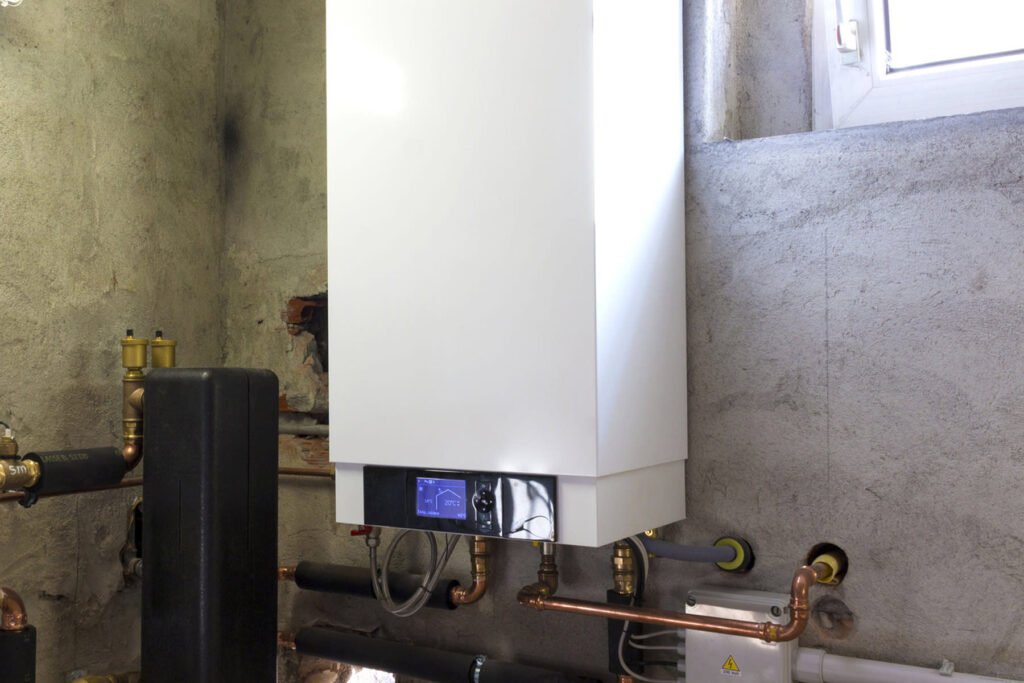
Choosing Between Boiler Repair and Replacement: Making the Best Decision
When it comes to maintaining a cozy and efficient home, the health of your boiler is crucial. Homeowners often face the challenge of repairing or replacing an old boiler with a new one. The decision involves considering upfront expenses, future efficiency, and safety. This comprehensive guide will explore the elements affecting your decision between boiler repair and replacement.
Understanding Your Boiler’s Age and Efficiency
The Lifespan of a Boiler
Most boilers have a lifespan of 15 to 20 years. If your boiler is within this age range, it’s important to consider its efficiency and the chance of increased repair needs.
Efficiency Over Time
As boilers age, they often become less efficient. This loss of efficiency can lead to higher energy bills and a less comfortable home environment. Contemporary boilers offer greater efficiency, which can significantly influence your decision-making process.
Analyzing Repair Costs and Frequency
Immediate Repair Costs
When dealing with a boiler breakdown, the immediate repair cost is a crucial factor. If the repair cost is not too high and the boiler is relatively new, repair might be the most economical option.
Frequency of Repairs
These costs can add up if you’re calling a technician often. Regular breakdowns are a clear sign that your boiler is nearing the end of its life, and replacement might be a more financially sensible choice.
Safety Considerations
The Risk of Old Boilers
Older boilers, such as fire hazards, can pose safety risks. Regular maintenance can reduce these risks, but an aging boiler might still be a liability.
Modern Safety Features
Manufacturers design boilers with advanced safety features and adhere to safety standards. If safety concerns are paramount, upgrading to a newer model might be the best option.
Environmental Impact and Energy Efficiency
Reducing Carbon Footprint
Modern boilers are more environmentally friendly. If being more environmentally conscious is a priority, investing in a new, energy-efficient boiler is wise.
Energy Savings
Although the upfront cost of a new boiler can be high, the long-term energy savings can be substantial. More efficient boilers use less energy, leading to lower utility bills.
The Impact on Home Value
Attracting Potential Buyers
A new boiler can be an attractive feature for potential homebuyers. It suggests to potential buyers that the home is well-maintained and may reduce the buyer’s future maintenance concerns.
Return on Investment
While a new boiler can increase home value weighing, the return on investment is essential. If you plan to sell your home soon, discuss with a real estate expert whether a new boiler will significantly impact your home’s market value.
Warranty and Reliability
Warranty Benefits
New boilers often come with warranties, providing peace of mind and protection against future issues. This factor can be a decisive factor for replacement.
Reliability and Peace of Mind
A new boiler typically offers more reliability and requires less maintenance, which can be a major advantage for busy homeowners.
When to Choose Repair
Minor Issues
For minor issues or if your boiler is relatively new, repair is usually the most cost-effective and sensible solution.
Budget Constraints
If you’re on a tight budget, repairing your existing boiler can be a temporary solution while you save for a replacement.
Short-Term Plans
Investing in a new boiler might not make financial sense if you plan to move soon. Fixing the existing unit might be the better choice for the short term.
When to Opt for Replacement
Beyond Economic Repair
If the cost of repairing your boiler is close to the price of a new one, replacement is the better choice.
Inefficiency and High Running Costs
Replacing your boiler with a more efficient model can be a wise investment when it becomes inefficient and leads to high energy bills.
Planning for the Long Term
If you plan to stay in your home for many years, investing in a new boiler can ensure comfort, efficiency, and peace of mind.
Conclusion
The decision between boiler repair and replacement depends on various factors, including age, efficiency, repair costs, safety concerns, environmental impact, home value, warranty, and your long-term plans. Weighing these factors will help you make an informed decision that balances short-term requirements with long-term benefits. Keep in mind, consulting with heating professionals can provide additional insights tailored to your specific situation, ensuring your home remains comfortable, safe, and efficient for years.

Understanding Different Types of Boilers: A Comprehensive Guide
Choosing the proper boiler for your house or business is a crucial decision. With a range of options out there, each offering distinct advantages, it’s vital to comprehend the pros and cons of each to make an informed selection. Below, we’ll explore the different types of boilers, examining their pros and drawbacks to help you select the one that best suits your requirements.
Intro to Boilers
Boilers are essential components in many homes and businesses, providing hot water and heating. They work by heating water, which then gets distributed through radiators or underfloor heating systems to provide warmth.
Different Boiler Varieties
1. Combi (Combination) Boilers
Pros:
- Space-Saving: Combi boilers don’t require a separate hot water cylinder, making them perfect for smaller homes or apartments.
- Energy Efficient: They only heat water on demand, reducing energy wastage.
- Affordable: Lower installation costs since they have fewer components.
Cons:
- Limited Hot Water Supply: This may not be suitable for homes with multiple bathrooms as they can only supply one hot water source.
- Water Pressure Concerns: Their performance can be affected in areas with low water pressure.
2. System Boilers
Pros:
- Steady Hot Water Supply: Can supply multiple taps or showers simultaneously.
- Energy-Saving: Like combi boilers, they are also efficient in energy use.
- Compact Size: Though larger than combi boilers, they are still relatively compact.
Cons:
- Needs a Hot Water Cylinder: A hot water cylinder takes up space.
- Heat Loss: The hot water cylinder can lose heat, leading to slight inefficiency.
3. Conventional (Regular) Boilers
Pros:
- Suitable for Large Homes: Suitable for homes with multiple bathrooms.
- Compatible with Old Radiator Systems: Ideal for older homes that can’t handle the high pressure of combi and system boilers.
Cons:
- Space-Consuming: Requires a cold water tank and a hot water cylinder.
- Less Efficient: More heat loss due to the hot water cylinder.
4. Condensing Boilers
Pros:
- High Efficiency: They reuse exhaust gases for extra heating efficiency.
- Eco-Friendly: Lower carbon emissions.
- Energy Saving: Can save on energy bills due to their high efficiency.
Cons:
Expensive Upfront: Typically more expensive upfront.
Affected by Cold Weather: Performance can be affected in extremely cold weather.
5. Electric Boilers
Pros:
- Compact Size: Ideal for smaller spaces.
- Eco-Safe: Do not produce carbon monoxide or gas leaks.
- Easy Upkeep: Fewer moving parts mean less wear and tear.
Cons:
- Higher Running Costs: Electricity is usually more expensive than gas.
- Not Suitable for Large Buildings: May not be efficient for larger homes or buildings.
- Choosing the Right Boiler for Your Needs
- Evaluating Your Needs
- Size of Property: Larger homes might benefit more from system or conventional boilers.
- Number of Bathrooms: Multiple bathrooms require a boiler to handle simultaneous demand.
- Current Heating Setup: Some homes, especially older ones, might be better suited to certain boilers.
- Considering Efficiency and Expenses
- Future Savings: While some boilers are more expensive up front, their energy efficiency can lead to savings in the long run.
- Budget Constraints: Consider installation and running costs.
- Eco-Impact
- Reducing Carbon Footprint: If environmental impact is a concern, condensing or electric boilers might be the preferred choice.
- Installation and Maintenance
- Expert Installation
- Safety and Compliance: Always use a qualified professional for installation to ensure safety and compliance with local regulations.
- Regular Maintenance
- Maintaining Efficiency: Regular maintenance can prolong the boiler’s life and ensure it runs efficiently.
Final Thoughts
Selecting the right boiler involves balancing various factors, including size, efficiency, cost, and environmental impact. By understanding the different types of boilers and their respective pros and cons, homeowners and business owners can make a more informed decision that meets their specific needs. Consider a boiler expert for personalized advice.

Recognizing the Value of Consistent Boiler Maintenance
Routine boiler maintenance is a crucial aspect of home upkeep that often goes overlooked. As the heart of your home’s heating system, the boiler plays a key role in ensuring a cozy and safe living environment. In this article, we’ll explore in detail why boiler servicing is essential, its benefits, and the recommended frequency for servicing.
Why Servicing Your Boiler Matters
Prolonging Boiler Lifespan: Like any mechanical systems, boilers undergo wear and tear. Regular servicing helps in detecting potential issues before they turn into expensive problems. By servicing your boiler, you greatly prolong its lifespan, ensuring it works effectively for many years.
Safety First: Safety is among the most critical reasons for regular boiler servicing. A faulty boiler can be hazardous, potentially leading to carbon monoxide leaks. These invisible, scentless fumes are a severe health hazard. Routine maintenance checks can detect such risks early, protecting you and your family.
Efficiency and Performance: A properly serviced boiler runs more efficiently. Over time, boilers can accumulate dirt and debris, which can impair their performance. Routine servicing ensures your boiler works at its best, which can also reduce energy bills.
How Often Should You Service Your Boiler?
The general recommendation is to service your boiler annually. This frequency ensures that any issues are identified quickly and that your boiler remains in good working condition. Some manufacturers may also require annual servicing to keep the warranty valid.
What Happens During a Boiler Service?
Inspection and Cleaning: A standard boiler service involves completely checking and washing the boiler’s elements. A boiler service includes checking the burner, heat exchanger, and other critical parts for any indications of wear or damage.
Performance Tests: The engineer will also perform tests to ensure the boiler operates efficiently and safely. Performance tests involve inspecting the flue for obstructions and testing the boiler’s controls.
Safety Checks: Safety checks are a crucial part of the service. Checks include checking for any gas or carbon monoxide leaks and ensuring that all safety devices are working properly.
DIY vs. Professional Boiler Servicing: Although homeowners can handle specific basic maintenance tasks, such as releasing air from radiators or monitoring pressure levels, it’s crucial to have a professional service your heater. Certified engineers hold the capabilities and tools required to conduct a thorough service, making sure your boiler functions safely and efficiently.
Signs You Need to Service Your Boiler
- Unusual Noises: Strange sounds like clanging, whistle-like, or bubbling sounds are signs that your boiler needs attention.
- Reduced Efficiency: If your heating bills are rising without an apparent reason, it could be due to an inefficient boiler.
- If you notice any manifestation of water leaking around your boiler, it’s a clear sign that it needs servicing.
- When your boiler unexpectedly stops working or doesn’t provide even heating, it’s the right moment to book a service appointment.
Maintenance Suggestions
- Regular Checks: Perform regular visual checks of your boiler for any signs of wear, leaks, or other issues.
- Ensure the area surrounding your boiler free from clutter. A clean space promotes adequate ventilation and simplifies problem identification.
- Monitor Pressure: Keep an eye on the boiler’s pressure gauge. A pressure drop can indicate a leak or other issue.
The Cost of Neglecting Boiler Maintenance
Neglecting boiler maintenance can result in expensive repairs or even the need for replacement. Furthermore, an inefficient boiler can significantly increase your energy costs. In the worst-case situations, neglected boilers can present a grave danger to health due to carbon monoxide poisoning.
Finding the Right Professional for Boiler Servicing
When looking for a professional to service your boiler, ensure they are Gas Safe registered (or the equivalent in your country). This certification is a testament to their expertise and knowledge in handling boiler systems safely and effectively.
To Summarize
Regular boiler servicing is not just a task on your home maintenance checklist; it’s a necessity. It ensures that your boiler functions safely, efficiently, and dependably. Frequently scheduling annual services helps you avert pricey repairs, lower energy costs, and, above all, ensure the safety of your home. Keep in mind, it’s always sensible to rely on expert expertise to ensure top-notch boiler performance.
Understanding Typical Boiler Problems: A Comprehensive Overview
Boilers are an essential component of many residences, supplying both warming and hot water. Yet, as with any mechanical system, problems can emerge with time. Recognizing these common problems equips homeowners to identify and address them promptly, possibly preserving on pricey repairs. This piece dives deeply at the common boiler concerns, offering insights on their causes, warning signs, and potential fixes.
Introduction to Boiler Issues
The efficiency and lifespan of a boiler rely on regular maintenance and prompt attention to problems. Identifying early warning signs can help prevent more extensive damage.
Lack of Heat or Hot Water: One of the most apparent signs of a boiler problem is the unavailability of warmth or hot tap water. This issue could arise from several causes, including malfunctioning thermostats, damaged diaphragms and airlocks, failed motorized valves, and low water levels.|When you face a lack of warmth or hot tap water in your boiler, it often indicates a problem. Likely causes involve malfunctioning thermostats, damaged diaphragms and airlocks, failed motorized valves, and insufficient water levels.
- Solution: Check the thermostat and reconfigure it if necessary. If the challenge persists, it may require expert attention to repair or resolve the malfunctioning parts.|To address this, initially, check the thermostat and reconfigure it if necessary. If the issue persists, it could demand professional assistance to replace or resolve the malfunctioning components.
Leaking and Dripping: Drips are a typical boiler problem, commonly caused by a malfunctioning internal component like pressure relief valve or sealing ring.| Commonly, boilers experience issues with leakages, usually stemming from a damaged internal component like pressure-release valve or sealing ring.
- Solution: Identify the source of the leak. If it’s from pressure-release valve, your boiler pressure might be too high. If it’s the sealing ring, it could need replacing. In most cases, leakages require professional repair.| Resolution: Discover the origin of the leak. If it’s coming from pressure-release valve, it could indicate excessive boiler pressure. If it’s due to a damaged sealing ring, it may require replacement. In most instances, leakages require expert repair.
Strange Noises: Boilers can make a range of noises, including banging, whistling, or gurgling, frequently due to air in the system, insufficient water pressure, and limescale or sludge buildup, resulting in ‘kettling.’|When it comes to strange noises, boilers can produce a range of sounds, such as banging, whistling, or gurgling, commonly caused by issues like trapped air, insufficient water pressure, and the accumulation of limescale or sludge, causing what’s known as ‘kettling.’
- Solution: Purging your radiators can eliminate air from the system. If the problem is ‘kettling,’ descaling and flushing the system might be required.|The fix is simple: Bleed your radiators to get rid of any trapped air in the system. If ‘kettling’ is the issue, think about descaling and flushing the system as a potential requirement.
Pilot Light Goes Out: A malfunctioning thermocouple, drafty conditions, or a buildup of deposits can result in the pilot light to go out.|If the pilot light goes out, it could be due to a damaged thermocouple, drafty conditions, or debris accumulation.
- Solution: Check for drafts or debris around the pilot light. If the issue is the thermocouple, it could need to be replaced.|To resolve the problem, examine the area around the pilot light for drafts or debris. If the problem is with the thermocouple, it may require being replaced.
Losing Pressure: If your boiler is losing pressure, it could be caused by leaking water or a malfunctioning pressure relief valve.
- Solution: If you encounter this problem, check for leaks in your boiler and radiators. If no leaks are detected, the problem may potentially lie with either the pressure relief valve or the expansion vessel, in which case, you’ll need to call a professional technician.
Frozen Condensate Pipe: Condensing boilers can experience issues in cold weather when the condensate pipe freezes, leading to the boiler ceasing operation.|When it’s cold, condensing boilers can experience challenges due to frozen condensate pipes, leading to the boiler ceasing operation.
- Solution: To tackle this situation, melt the pipe using warm (not boiling) water and add insulation to prevent future freezing.|The solution is to melt the pipe with warm (not boiling) water and install insulation to prevent it from freezing again in the future.|To address this problem, melt the pipe using warm (not boiling) water and insulate it to avoid future freezing incidents.
Thermostat Issues: Inaccurate or inconsistent readings can influence|negatively impact your boiler’s efficiency.
- Solution: Check and recalibrate the thermostat. Furthermore, contemplate upgrading it to a more recent, more effective model if it’s outdated.
Radiator Problems: In cases where radiators are not providing sufficient heat, it could be due to sludge or air buildup.
- Solution: One solution is to bleed your radiators to release trapped air. If this doesn’t work, you may need to flush the system.
Boiler Keeps Switching Itself Off: The issue might arise from depleted water pressure, issues related to the thermostat, or inadequate water flow due to shut valve, air pockets, or a pump issue.
- Solution: Inspect the pressure gauge and, if needed, increase the pressure to your boiler. Make sure that all valves are fully open and the thermostat is operating as it should.
Avoiding Boiler Issues
To avert typical boiler problems, routine maintenance is key. Having your system serviced by a certified technician annually assures optimal and safe operation. Routine inspections can identify issues beforehand to avert them from becoming significant repairs.
Tips for Boiler Maintenance:
- Don’t forget to schedule yearly servicing with a certified engineer for your boiler.
- Check Pressure: Regularly monitor your boiler’s pressure gauge.
- Ensure efficiency by frequently bleeding air from your radiators.
- Look for Leaks: Frequently inspect your boiler for any signs of leaks or drips.
- Listen for Noises: Be attentive to unusual noises from your boiler.
Conclusion
Understanding common boiler problems is essential for preserving a warm and comfortable home. Most issues, ranging from leaks to strange noises, have simple solutions, but timely detection is vital. Routine maintenance and servicing are the ideal ways to ensure your boiler operates efficiently and lasts for years. Keep in mind, always consult a professional to handle complicated or dangerous repairs when in doubt. By staying informed and proactive, homeowners can ensure their boilers remain reliable and efficient, keeping their homes cozy and safe throughout the year.
Emergency Boiler Repairs: Why Boiler Service Pros in Mill Woods is Your Go-To Solution
When your boiler breaks down, it’s more than just an inconvenience; it’s a disruption to your comfort and routine. Selecting the right service provider is crucial, and Boiler Service Pros stands out as the optimal choice for emergency boiler problems.
One of the hallmarks of Boiler Service Pros is their swift response time. Comprehending the urgency of boiler malfunctions, they place a premium on emergencies, making sure they send a highly skilled technician promptly to resolve your issue.
At Boiler Service Pros, expertise is paramount. Their staff consists of experienced technicians, each extensively trained to handle various boiler problems. With this depth of knowledge, you can rest assured that your boiler will receive efficient and precise repairs.

Our Work


